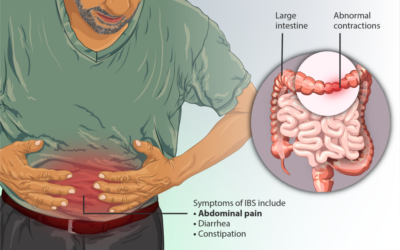Your liver is an amazing organ. It works to clean toxins and helps filter your blood by clearing away old blood cells and processing foreign substances like medications and alcohol. People who experience a decline in liver health often experience a decline in the health of the rest of their body too because your blood needs the filtration your liver provides.
Livers can begin to suffer for many reasons, but some health problems such as fatty liver disease or liver damage from alcohol abuse are preventable. Most people can benefit from a diet that helps their liver to heal and stay healthy.
Detoxification
You hear a lot of myths about body detoxification. Many detox diets are based on pseudo-science and do nothing to clean toxins from your body. Your liver is your detoxification organ, and the best thing you can do is eat right on a daily basis to keep it from ever getting sick.
If you hear about a detoxification diet, do not start it until you talk to a gastroenterologist, who can help you know if that specific eating plan might be harmful to your health. Some diets are too restrictive for any long-term health gain.
Fats
When you want to reduce the stress on your liver, the first thing to do is to reduce your intake of foods that are high in fat. Fats are harder for your body to process as they must be broken down with bile, which is what your liver produces. Bile helps to dissolve fats to make them more accessible to digestive enzymes in your small intestine.
Reducing your fat intake makes your meals simpler to digest. You do need some fat in your diet, but try to get it from whole sources such nuts and seeds instead of from oily salad dressing, fried foods, or high-fat foods like ice cream and bacon.
Sugars
Sugar also slows your body’s healing response. Your liver uses a specific kind of sugar, fructose, to create fatty deposits, which will directly lead to liver disease. Reducing your sugar intake can be complicated for people who are not used to a low-sugar diet.
In particular, avoid soda and juice. Soda is sweetened with high-fructose corn syrup, which is tough on your liver. Juice is made from fruit, so it seems healthy, but fruit sugar (fructose) is much more highly concentrated in juice than in a normal piece of fruit.
Alcohol
People with liver problems should avoid all alcohol intake. Alcohol use is one of the primary causes of liver cirrhosis and liver cancer. If you have any kind of liver disease, including hepatitis or fatty liver disease, alcohol use can make it worse because alcohol stresses the liver.
If you have trouble reducing your intake, talk with your doctor about programs that can support you to overcome alcoholism.
Healthy Foods
So if liver cleanses are not right for you and if you should avoid fat, sugar, and alcohol, what should you eat on a daily basis to help promote your liver health?
- Whole grains. These are high in fiber, offer protein and essential nutrients, and don’t have any adverse side effects.
- Vegetables. Vegetables are golden food for liver health. They are low in sugar, offer plenty of vitamins and minerals, and help you to fill up at a meal. And you can often eat as many as you want without worrying about weight gain. Choose vegetables that are a variety of colors, including deep green and bright orange.
- Fruit. Even though fruit has fructose, you can still eat it. Your doctor might suggest focusing on low-glycemic fruits like berries and apricots instead of more sugary fruits like watermelon and bananas.
- Lean meats. Fish is good choice for protein, and you can also eat turkey and chicken. Avoid chicken skin or any fried meat as well as packaged meats like hot dogs, which are high in sodium and nitrates.
Your doctor can help you care for your liver. Contact us at Victoria Gastro Health & Nutrition for more information on how to eat for liver health.




0 Comments